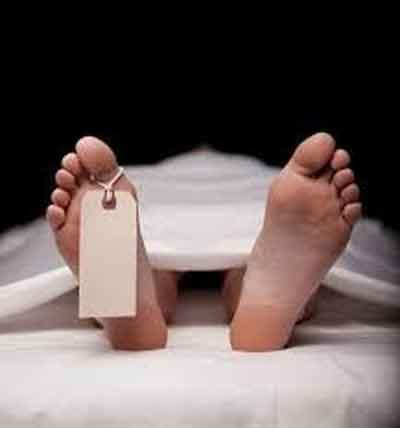- Home
- Medical news & Guidelines
- Anesthesiology
- Cardiology and CTVS
- Critical Care
- Dentistry
- Dermatology
- Diabetes and Endocrinology
- ENT
- Gastroenterology
- Medicine
- Nephrology
- Neurology
- Obstretics-Gynaecology
- Oncology
- Ophthalmology
- Orthopaedics
- Pediatrics-Neonatology
- Psychiatry
- Pulmonology
- Radiology
- Surgery
- Urology
- Laboratory Medicine
- Diet
- Nursing
- Paramedical
- Physiotherapy
- Health news
- Fact Check
- Bone Health Fact Check
- Brain Health Fact Check
- Cancer Related Fact Check
- Child Care Fact Check
- Dental and oral health fact check
- Diabetes and metabolic health fact check
- Diet and Nutrition Fact Check
- Eye and ENT Care Fact Check
- Fitness fact check
- Gut health fact check
- Heart health fact check
- Kidney health fact check
- Medical education fact check
- Men's health fact check
- Respiratory fact check
- Skin and hair care fact check
- Vaccine and Immunization fact check
- Women's health fact check
- AYUSH
- State News
- Andaman and Nicobar Islands
- Andhra Pradesh
- Arunachal Pradesh
- Assam
- Bihar
- Chandigarh
- Chattisgarh
- Dadra and Nagar Haveli
- Daman and Diu
- Delhi
- Goa
- Gujarat
- Haryana
- Himachal Pradesh
- Jammu & Kashmir
- Jharkhand
- Karnataka
- Kerala
- Ladakh
- Lakshadweep
- Madhya Pradesh
- Maharashtra
- Manipur
- Meghalaya
- Mizoram
- Nagaland
- Odisha
- Puducherry
- Punjab
- Rajasthan
- Sikkim
- Tamil Nadu
- Telangana
- Tripura
- Uttar Pradesh
- Uttrakhand
- West Bengal
- Medical Education
- Industry
Autopsy can not be done within 48 hours of receiving body: Health Dept to Delhi HC

The bodies cannot be preserved after carrying out autopsy as it leads to speeding up of decomposition, it is spreading to other bodies, spillage of biological fluids which increase risk of infection to mortuary staff and affects hygiene and piling up of bodies which would lead to the shortage of space.
New Delhi: The Health Department of the AAP government recently told the Delhi High Court that autopsy cannot be done within 48 hours of receiving a body as it is difficult to preserve it thereafter for identification purpose.
The stand taken by the department was indicated in minutes of a meeting held on April 10 by representatives of the Delhi Police, Home Department, municipal corporations and the forensic medicine division on orders of the high court to deal with the condition of mortuaries and handling of bodies.
Read Also: NDMC demolishes newly built Mohalla Clinic; AAP govt fumes
Delhi government standing counsel (criminal) Rahul Mehra sought time from the court to file the minutes of the meeting along with an affidavit and the bench listed the matter for further hearing on May 29.
The minutes indicate amicus curiae Saqib had recommended that post-mortems be conducted within 48 hours of receipt of a body instead of waiting for its identification and then the corpse can be preserved till it is disposed of.
Disagreeing with the recommendation, the Health Department has said an autopsy will be performed only after submission of requisition and inquest papers by an investigating officer (IO).
It also said bodies cannot be preserved after carrying out autopsy as it leads to speeding up of decomposition, it is spreading to other bodies, spillage of biological fluids which increase risk of infection to mortuary staff and affects hygiene and piling up of bodies which would lead to the shortage of space.
The Health Department was also averse to the amicus' suggestion to provide the post-mortem report to police via electronic media, saying there was "risk to the maintenance of chain of custody", the possibility of "violation of confidentiality" of the report and chances of it being "hacked or misused".
Read Also: Plea for free education, food and medical aid: HC seeks Centre, AAP Govt stand
The department also disagreed with the amicus' suggestion to video record autopsy procedures, saying it was not possible in all cases due to time constraints and would lead to delaying post-mortem process.
It, however, agreed with the recommendation to install CCTV cameras in mortuary premises to strengthen security, but was averse to installing them inside the autopsy room as it shall be a violation of the constitutional rights of a deceased "as it breaches the privacy of the dead and confidentiality of the post-mortem findings".
The department has agreed with the suggestion to post the sufficient number of autopsy surgeons in all mortuaries.
The Delhi Police, in the meeting, stated it was in the process of strengthening its crime team numbers to enable the collection of evidence from crime scenes in all 13 police districts and the five districts coming under railways.
The Home Department has said four mobile forensic vans have been procured and deployed to assist crime team and the forensic science laboratory was in the process of procuring 14 more.
The amicus had recommended increasing the crime team numbers as well as the use of mobile forensic labs to collect evidence and DNA samples from crime scenes.
On transporting of bodies to mortuaries, the amicus had recommended doing away with the present practice of police officers carrying out the exercise at their expense.
Accepting his recommendation, the Health Department has said it will deploy hearse vans for the transportation of bodies to mortuaries.
The high court had appointed advocate Saqib as the amicus curiae to inspect mortuaries in Delhi while hearing a PIL initiated by it after it came to know about an incident in which an eye was gouged out from a murder accused's body kept in the mortuary of a government hospital here.
Medical Dialogues Bureau consists of a team of passionate medical/scientific writers, led by doctors and healthcare researchers. Our team efforts to bring you updated and timely news about the important happenings of the medical and healthcare sector. Our editorial team can be reached at editorial@medicaldialogues.in.


